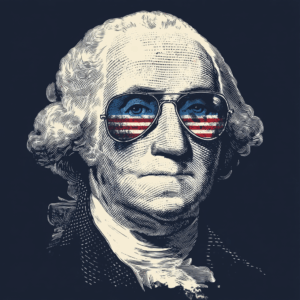As we celebrate the Fourth of July and reflect on what independence truly means, there’s a powerful parallel between America’s fight for freedom from British rule and the ongoing struggle healthcare providers face today. Just as our founding fathers sought liberation from oppressive taxation and bureaucratic control, modern healthcare professionals are discovering their own path to independence through outsourced credentialing and medical billing services.
The comparison might seem unconventional at first, but the underlying principles are remarkably similar. Both involve breaking free from systems that drain resources, limit potential, and prevent organizations from focusing on their core mission. For America’s founders, that mission was building a new nation based on liberty and self-determination. For healthcare providers, it’s delivering exceptional patient care without drowning in administrative quicksand.
The Tyranny of Administrative Burden
Much like the colonists who found themselves increasingly burdened by British taxes and regulations, today’s healthcare providers face their own version of administrative tyranny. The modern medical practice operates under a crushing weight of paperwork, compliance requirements, and bureaucratic processes that seem to multiply faster than anyone can manage them.
Consider the credentialing process alone. Healthcare providers must navigate a maze of applications, documentation requirements, and verification procedures across multiple insurance networks, hospitals, and healthcare systems. Each entity has its own forms, deadlines, and specific requirements. The process can take months to complete, and any small error or missing document can set everything back to square one.
Meanwhile, medical billing has evolved into a complex science that requires specialized knowledge of coding systems, insurance regulations, and ever-changing compliance requirements. Healthcare providers who attempt to handle these processes in-house often find themselves spending more time on administrative tasks than on patient care. It’s a situation that would have resonated deeply with the American colonists who saw their productive capacity increasingly diverted to satisfy distant bureaucratic demands.
The Declaration of Administrative Independence
Just as the Continental Congress declared independence from British rule in 1776, healthcare providers today are making their own declarations of independence from administrative burdens. They’re recognizing that freedom doesn’t mean doing everything themselves. It means having the liberty to focus on what matters most while trusted partners handle the complexities that drain time and resources.

This healthcare independence movement is built on the same fundamental principle that drove America’s founders: the belief that organizations should be free to pursue their primary mission without being overwhelmed by external administrative demands. For medical practices, that primary mission is clear, providing excellent patient care and building thriving, sustainable practices.
The beauty of outsourced credentialing and medical billing lies not just in the practical benefits, but in the philosophical shift it represents. It’s a recognition that true independence sometimes means choosing interdependence with the right partners. The American colonies themselves understood this principle when they formed alliances with France and other nations to support their cause. Sometimes, the path to independence requires strategic partnerships with those who share your goals and can provide the expertise you need.
Freedom Through Specialization
The founding fathers understood that effective governance required specialization. They didn’t expect every citizen to be an expert in law, military strategy, diplomacy, and commerce. Instead, they created a system where different people could contribute their unique skills and expertise to the common good. This same principle applies beautifully to healthcare administration.
Medical professionals train for years to master the art and science of patient care. They study anatomy, pharmacology, diagnostic techniques, and treatment protocols. Asking these same professionals to also become experts in insurance credentialing, medical coding, and billing regulations is like asking a master craftsman to also become an accountant, lawyer, and customer service representative all at once.
Outsourced credentialing and billing services represent a return to the efficiency that comes from specialization. These companies employ professionals who dedicate their entire careers to understanding the intricacies of healthcare administration. They stay current with changing regulations, maintain relationships with insurance companies, and develop systems that maximize efficiency and accuracy.
When healthcare providers partner with these specialists, they’re exercising their freedom to focus on what they do best. It’s the same principle that allows Americans to benefit from the expertise of farmers, manufacturers, teachers, and countless other specialists without having to master every skill themselves.
The Economics of Independence
The American Revolution was sparked partly by economic concerns. The colonists felt that British taxation and trade restrictions were limiting their prosperity and growth potential. Similarly, healthcare providers often find that administrative burdens create their own form of economic oppression, limiting their ability to see patients, grow their practices, and achieve financial stability.
Managing credentialing and billing in-house requires significant investment in staff, training, technology, and ongoing education. These costs are often hidden or underestimated, but they add up quickly. Staff members need competitive salaries and benefits. They require continuous training to stay current with changing regulations and procedures. Technology systems need regular updates and maintenance. When errors occur, and they inevitably do in complex systems, the costs can be substantial.
Outsourcing these functions transforms these variable costs into predictable expenses while often reducing the total cost of operations. More importantly, it frees up capital and human resources that can be redirected toward revenue-generating activities and practice improvement initiatives.
The economic benefits extend beyond simple cost reduction. When credentialing is handled efficiently by experts, providers can participate in more insurance networks and see patients sooner. When billing is optimized, practices collect more of what they’re owed, and they collect it faster. These improvements in cash flow and revenue recognition can have dramatic impacts on practice sustainability and growth potential.
Technology as a Tool of Liberation
The American colonists used available technology (printing presses, ships, and firearms) to support their fight for independence. Today’s healthcare providers have access to sophisticated technology platforms that can serve as their own tools of liberation from administrative burdens.
 Modern credentialing and billing companies leverage advanced software systems that automate routine tasks, track deadlines, identify potential issues before they become problems, and provide real-time visibility into the status of applications and claims. These systems can process information faster and more accurately than traditional manual methods, reducing errors and accelerating timelines.
Modern credentialing and billing companies leverage advanced software systems that automate routine tasks, track deadlines, identify potential issues before they become problems, and provide real-time visibility into the status of applications and claims. These systems can process information faster and more accurately than traditional manual methods, reducing errors and accelerating timelines.
Cloud-based platforms allow seamless communication between providers and their outsourcing partners, ensuring that everyone has access to current information and can collaborate effectively regardless of physical location. Integration capabilities mean that these systems can work harmoniously with existing practice management software, creating streamlined workflows that enhance rather than disrupt established practices.
The technology advantage extends to compliance and reporting as well. Automated systems can ensure that all necessary documentation is collected and maintained, that deadlines are tracked and met, and that reporting requirements are satisfied consistently. This technological infrastructure provides a level of reliability and accountability that would be difficult and expensive for individual practices to achieve independently.
Building Stronger Healthcare Communities
The American Revolution wasn’t just about individual freedom, it was about creating stronger communities and a more perfect union. The same principle applies to healthcare independence through outsourcing. When providers are freed from administrative burdens, they can contribute more effectively to their healthcare communities and professional networks.
Time that was previously spent on paperwork and administrative tasks can be redirected toward continuing education, quality improvement initiatives, and collaboration with colleagues. Providers can participate more actively in medical societies, community health programs, and professional development opportunities. They can invest in new technologies, expand services, or explore innovative care delivery models such as a value-based care model.
This ripple effect strengthens the entire healthcare ecosystem. When individual practices operate more efficiently and effectively, they contribute to better patient outcomes, increased access to care, and more sustainable healthcare delivery systems. The independence gained through strategic outsourcing partnerships ultimately serves the broader goal of improving healthcare for everyone.
The Courage to Choose Independence
Perhaps the most striking parallel between America’s founders and today’s healthcare providers is the courage required to choose a different path. The colonists could have continued accepting British rule, paying the taxes, and following the regulations. It would have been easier in the short term to maintain the status quo rather than risk the uncertainty of independence.
Similarly, healthcare providers often hesitate to outsource critical functions because it requires trust, change, and a willingness to do things differently. There’s comfort in maintaining direct control over every aspect of practice operations, even when that control comes at a significant cost in time, money, and stress.
The decision to outsource credentialing and billing requires the same kind of courage that drove America’s founders, the courage to envision a better future and take concrete steps to achieve it, even when the path forward involves uncertainty and change. It requires trust in partners who share your values and commitment to excellence.
Celebrating Healthcare Independence
 This Fourth of July, as we celebrate America’s independence and the freedoms it represents, healthcare providers have their own reasons to celebrate. Every practice that has successfully partnered with credentialing and billing specialists has achieved its own form of independence, freedom from administrative tyranny, liberty to focus on patient care, and the pursuit of practice excellence without bureaucratic interference.
This Fourth of July, as we celebrate America’s independence and the freedoms it represents, healthcare providers have their own reasons to celebrate. Every practice that has successfully partnered with credentialing and billing specialists has achieved its own form of independence, freedom from administrative tyranny, liberty to focus on patient care, and the pursuit of practice excellence without bureaucratic interference.
This independence doesn’t diminish the provider’s role or importance. America’s independence didn’t make the nation weaker or less significant on the world stage; healthcare independence through strategic partnerships makes practices stronger and more capable of achieving their mission.
The path forward is clear for healthcare providers who are ready to declare their independence from administrative burdens. The tools, technologies, and trusted partners are available to make this vision a reality. All that’s required is the courage to choose freedom and the wisdom to recognize that true independence sometimes means choosing the right interdependencies.
When we light fireworks and celebrate freedom this July 4th, healthcare providers across the country can also celebrate their own path to independence. One that leads to better patient care, more sustainable practices, and the liberty to focus on what matters most in the noble profession of healthcare.

